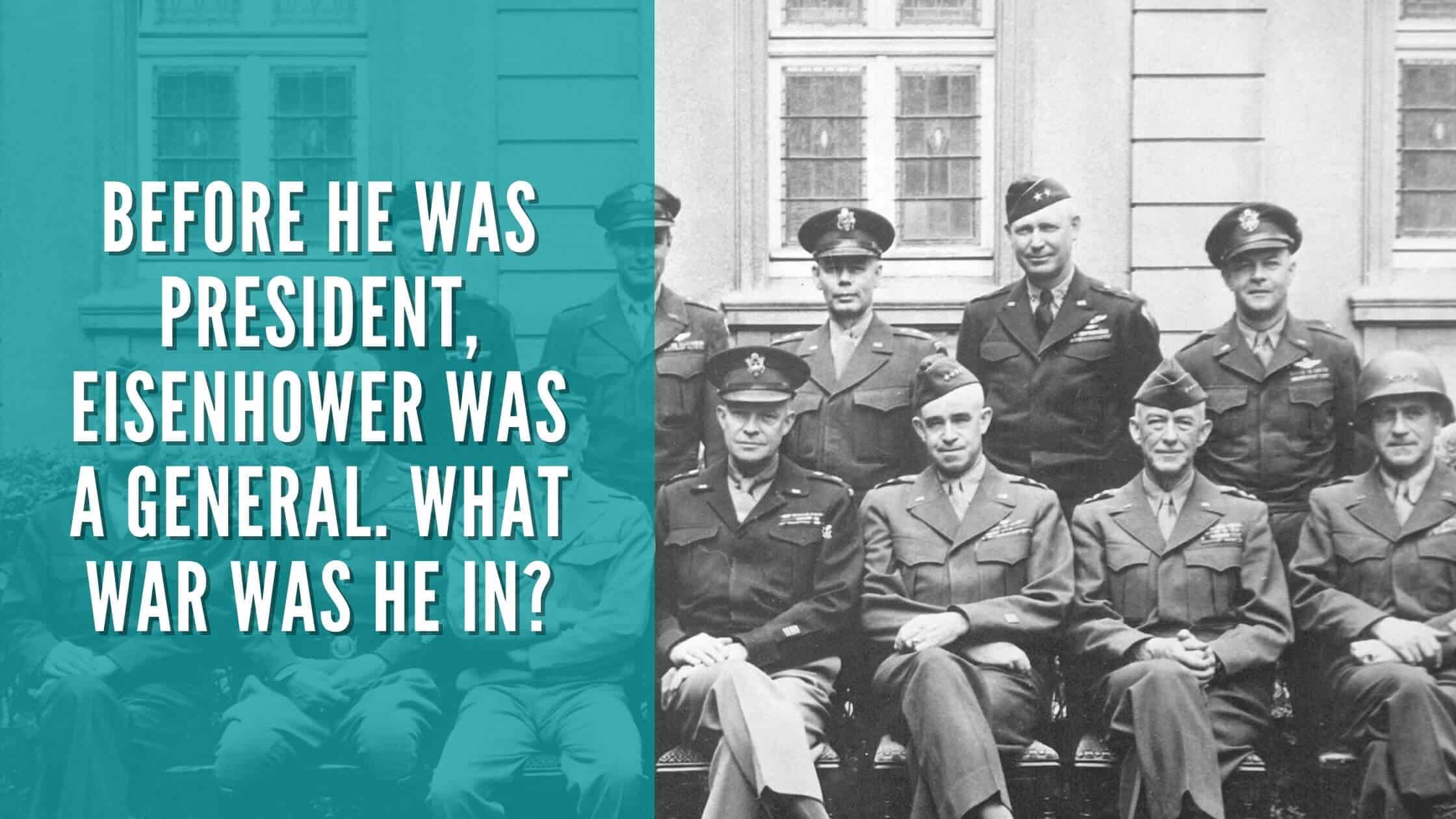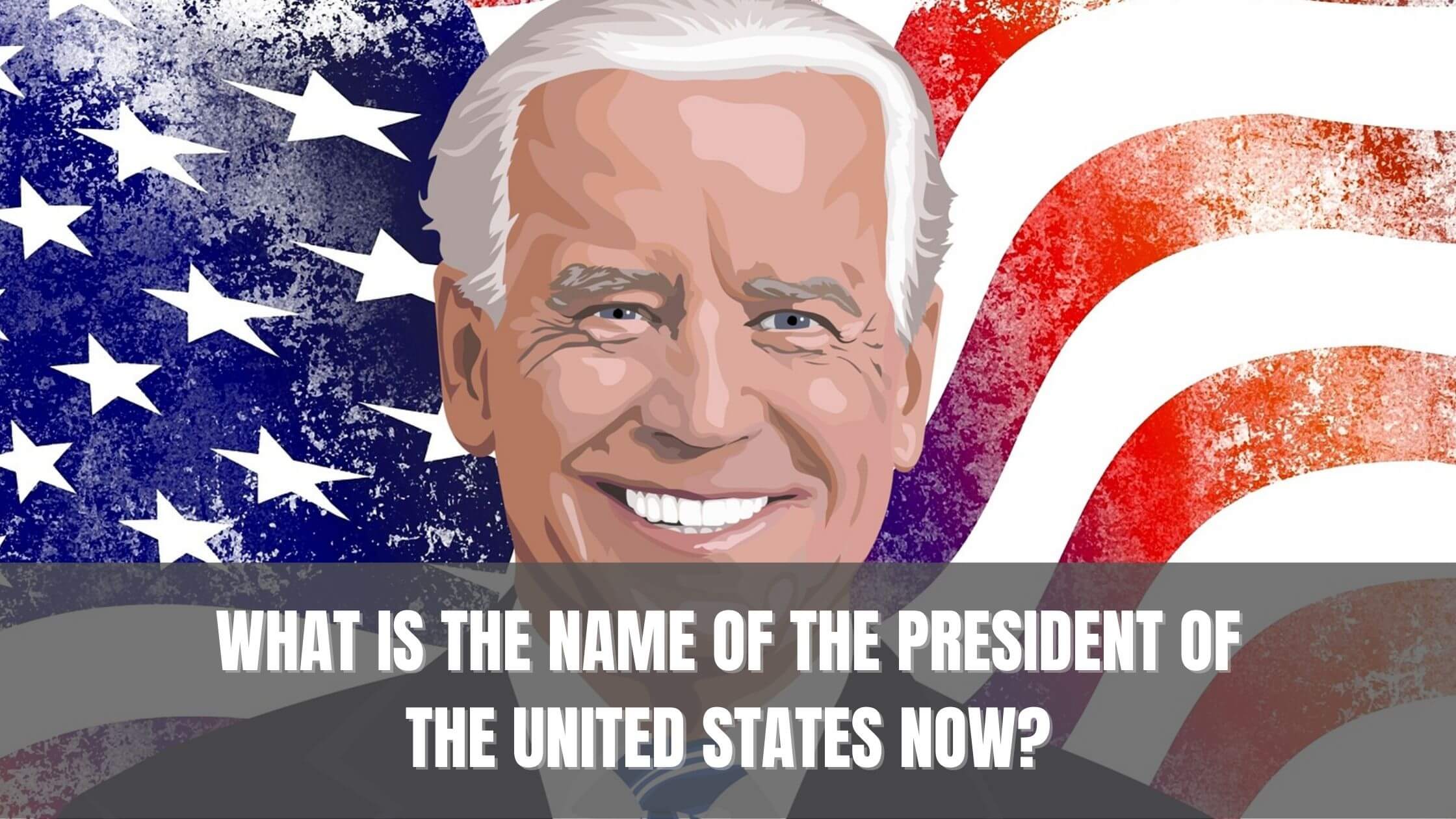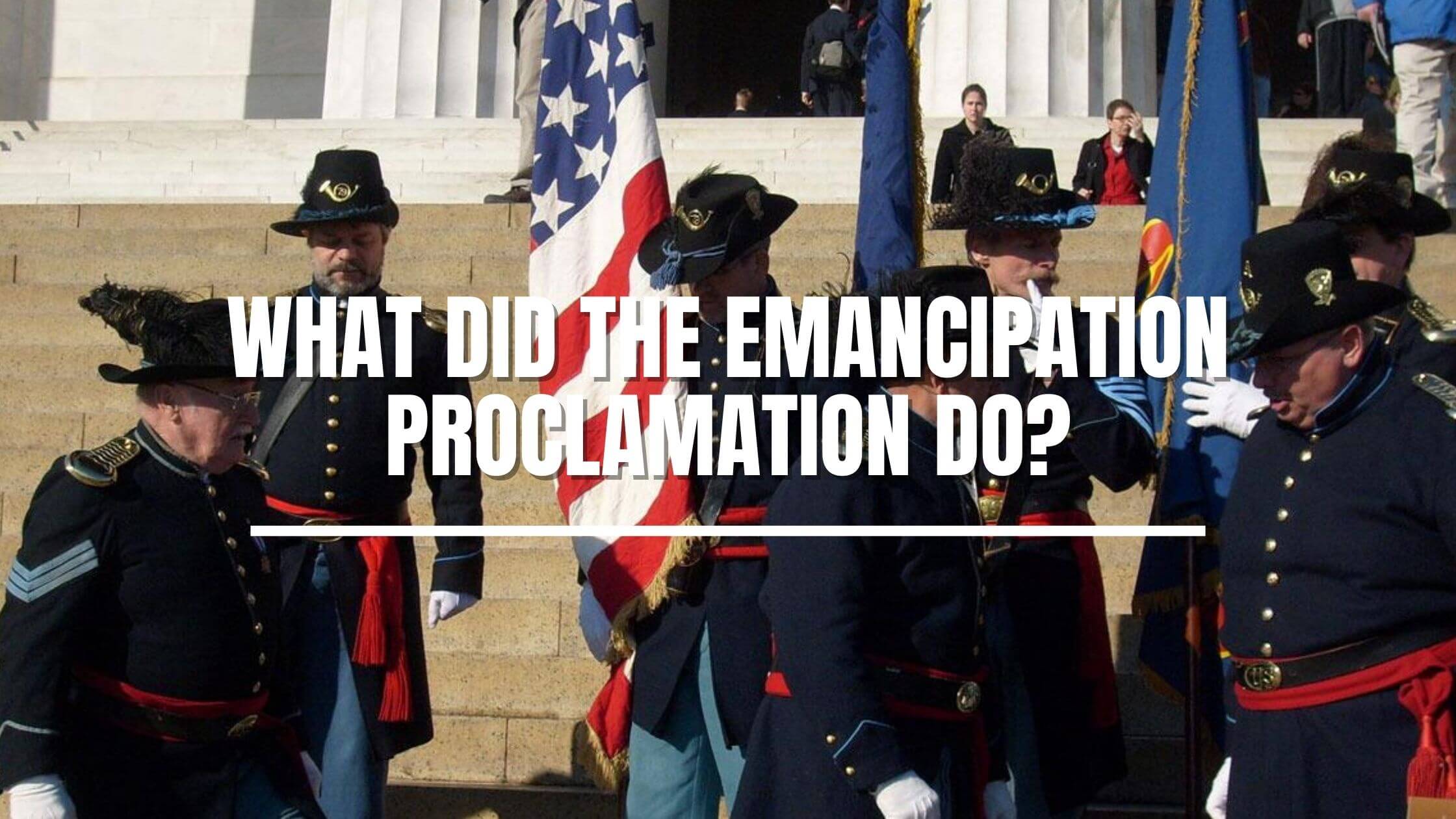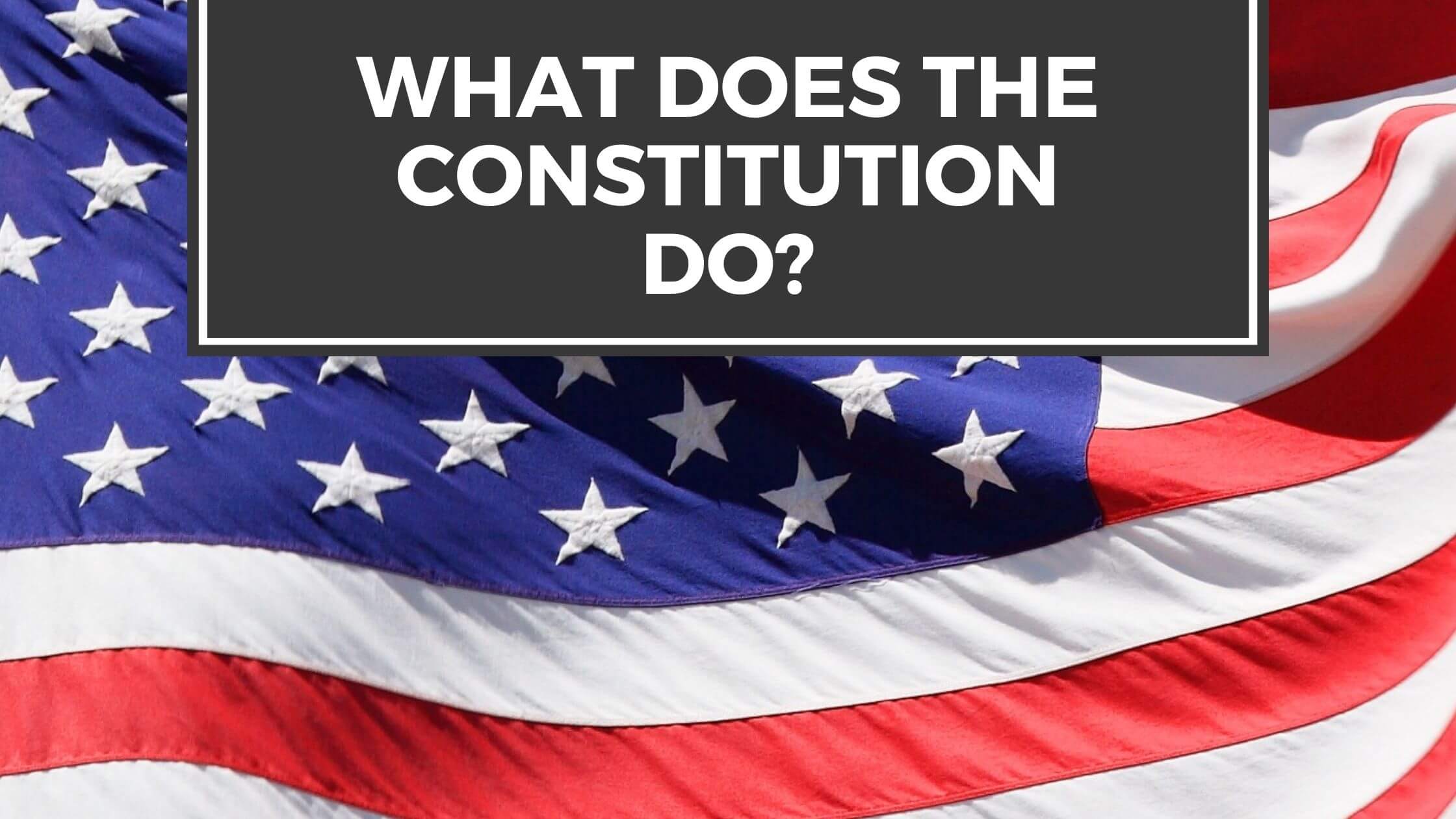Table of Contents
ToggleTo pass the US citizenship test, you will have to answer 10 of a possible 100 questions. The following question is from the USCIS test.
Before he was President, Eisenhower was a General. What war was he In?
Answer:
World War II.
The following is a full explanation of the USCIS question:
Dwight David Eisenhower was an influential figure during World War II as a high-ranking member of the United States armed forces. His skills and actions across numerous campaigns helped the Allied Powers secure victory over Nazi Germany. But, this was not Eisenhower’s introduction to military action. He dedicated decades of his life to military service and would later become Commander in Chief through his role as President of the United States.
Which War Was Eisenhower Involved In?
Eisenhower’s long history as a military leader and Commander in Chief meant that he was involved in many conflicts. Before taking up the presidency, Eisenhower was an active member of the armed forces and oversaw campaigns in World War II. He had hoped to be more involved in World War I in his younger years but was stationed initially in logistics and then the infantry at various camps in Texas and Georgia. As Commander in Chief, he was responsible for military actions in the Korean War and was in office during the early years of the Cold War.
Eisenhower in World War I
Something that is largely overlooked about Eisenhower’s military yearrs is that he was an active member during World War I. He graduated in 1915 and attained the role of Second Lieutenant. He had requested to be stationed overseas but was denied and ultimately contributed to the war effort on home soil. He would not leave the country during this war, but things were very different by the time of the next global conflict.
World War II
The United States entered World War II towards the end of 1941, following the attack on Pearl Harbor. By this point, Eisenhower had risen through the ranks and promoted to Brigadier General the same year. He became an influential figure and was entrusted with important missions and campaigns.

Get Smarter on US News, History, and the Constitution
Join the thousands of fellow patriots who rely on our 5-minute newsletter to stay informed on the key events and trends that shaped our nation's past and continue to shape its present.
Eisenhower was a member of the General Staff in the capital that worked on developing war plans. He would go on to visit London to assess the situation there and meet with his Allied counterparts. Following that, he would direct the invasions of North Africa and Sicily before focusing his attention on France and Germany.
By 1945, Eisenhower had assumed the European Theater of Operations command and was the Supreme Allied Commander of the Allied Expeditionary Force. These roles gave him responsibility for some of the biggest campaigns towards the end of the war. For example, the D Day Landings and the liberation of Western Europe.
Following the Second War War, General Eisenhower continued to earn promotions to notable positions. In 1945 he became the United States Army Chief of Staff and held that role until 1948. He was also Supreme Commander of the North Atlantic Treaty Organization (NATO) between 1951 and ’52. In 1952, his life would take a different direction when he was persuaded to run for president.
Holocaust Remembrance
An interesting fact about President Eisenhower’s time in the war relates to the Holocaust. He felt that the Germans would attempt to play down their atrocities and either claim that they didn’t happen or their actions were misrepresented for propaganda purposes. These fears led Eisenhower to order photographic and video evidence to be taken of concentration camps.
Eisenhower, As Commander in Chief
When Eisenhower won the election and was subsequently sworn into office as the 34th President of the United States, he gained the new title of Commander in Chief. He inherited the Korean War along with that prestigious title. There were suspicions that communist North Korea had greater intentions in the region, and the United States had fought to stop the scourge of communism in its tracks. Eisenhower ended the war in 1953.
One of the intriguing things about Eisenhower’s approaches during his time as president is that there was a deliberate attempt to stay away from conflict and maintain peace. This was a major part of his doctrine during the Cold War with the Soviet Union, which, as its name suggests, saw no direct combat between the two warring nations. It was more of a war of ideologies and propaganda than a shooting one. This was partly due to the fear that any conflict would turn nuclear.
Views on Nuclear War and Disarmament
Eisenhower had strong views on the use of atomic bombs in war, which were clear in both World War II and the Cold War. During World War II, Eisenhower opposed dropping atomic bombs on Japan. He argued that it wasn’t necessary to “hit them with that awful thing” and was angered that the United States was the first nation to use such a weapon. Following this, he would focus on a disarmament proposal for the Soviet Union on learning about the hydrogen bomb test. The measure was known as “Atoms for Peace.”
The Legacy of Eisenhower as a Wartime President
When Eisenhower died, he was buried in his Second World War uniform to mark his greatest achievements. The uniform was decorated with a series of medals obtained for his service over the years, such as the Army Distinguished Service Medal, Navy Distinguished Service Medal, and the Legion of Merit. Surprisingly, his grave is not in Arlington, which is the final resting place for many high-ranking officers of the armed forces. Instead, the decision was made to bury him with his family at the Eisenhower home.
Suppose you are to think of wartime presidents. Wilson, Roosevelt, and Truman may be the ones that come to mind first from the 20th century. However, the influence of Eisenhower in the armed forces and as Commander in Chief should not be understated. His actions under the command of previous presidents helped shape the history of the world and the nation he would later preside over himself











